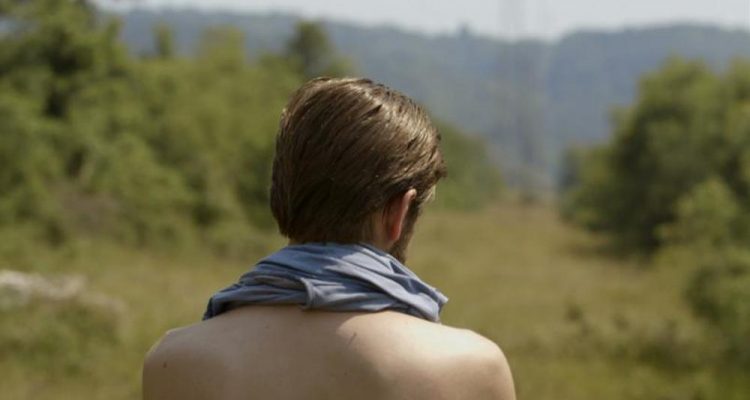Retrospect is anything but 20/20 in Croatian director Igor Bezinović‘s International Film Festival of Rotterdam premiere “A Brief Excursion,” a film that at first seems to be wending a trail between the bittersweet nostalgia of “Stand By Me” and the anthemic youthfulness of “American Honey,” before striking off into the woods of the less familiar, the more singular. Based on a novel by Antun Soljan which also inspired Bezinovic’s previous short “A Very Brief Excursion,” it might seem like a slight, small film on which to hang grandiose claims. But it is a deceptively clever embrace of various cinematic paradoxes, such as the different ways we process what we’re shown and what we’re told, and the medium’s definingly slippery grasp on time and ephemerality. It’s also a gentle travelogue and an authentic account of the kind of incident that will be familiar to many of us from our early twenties: a long walk on a summer day in the company of people you only sort of know, on a wild goose chase that proves nothing but the truism that the journey is more important than the destination. But beyond all that, this impressive, confident narrative feature debut is about memory: it is both a record of a remembered past and an acknowledgement that any such record will always be full of flaws and omissions. The past is another country, and like any country, every time you visit, it has changed.
Unfolding in sunlit Academy ratio (a formal aspect that again reminds us of Andrea Arnold’s “American Honey,” though DP Danko Vucinovic‘s imagery is less romanced that Robbie Ryan‘s), it starts off at a small music festival. Over the course of a few unhurried, directionless days, Stola (Ante Zlatko Stolica) dances, drinks and forms fleeting attachments to a few likeminded young people, who wander the hot streets of the small Croatian village by day and tumble drunkenly into hammocks and tents in the small hours of the morning. Stola narrates the film in an even, unemotional tone that is nevertheless explicitly him looking back on this uneventful yet somehow momentous period, with forensic, unsentimental curiosity.

At some point Roko (Mladen Vjucic) arrives, and becomes part of the group, persuading Stola and some others to join him on an early morning bus journey to a monastery in the countryside that he believes has some spectacular old frescoes adorning its walls. The bus breaks down, but several of the group decide to continue on foot, despite not really knowing the way and being unprepared for a long hike in the baking heat. The six of them — or is it seven? Stola is no longer sure — bicker and chat and trundle through the woods and laneways, following Roko even when it starts to seem likely that they’ll never get where they’re going. And all the while Stola’s narration sometimes confirms and sometimes contradicts the images we’re seeing: he tells us he remembers a particular young woman they encounter stroking a white dog, but the dog actually appears in the arms of an old man later on; he tells us of his frustration that certain details have become blurry, yet the pictures are pin-sharp and clear as crystal. It’s as though the camera is doing the remembering for him, silently rebuking his memorializing for containing so many inaccuracies.
But then the camera, too, records things that seem unlikely, staged or outright surreal. One by one the other members of the group fall away: the girl Stola likes follows an ox into a field and never returns; a guy stops to chat with a beautiful village girl and is left behind; another guy falls into a drunken stupor at a makeshift bar where they make an impromptu stop; still another joins a pagan procession as they dance off into the hills. Finally, it’s just Stola and Roko and the question of whether this monastery even exists.

Bezinović’s prior experience has largely been as a documentarian, and perhaps that’s one reason, aside from the uniformly excellent performances, that his filmmaking feels so well-observed and naturalistic, even when the narrative starts to feel more allegorical, like a modern-day “Canterbury Tales” or a fable by Aesop. His use of music is peculiar but effective too — long stretches will unfold without score but then a jarringly jaunty trumpet will sound out suddenly. Like Stola’s self-doubting, meta narration, it has the effect of bringing us out of the heat-hazy, trancelike rhythms of the film, and forcing us to step back, just as the older narrator version of Stola, through the act of remembering, continually pivots between being a participant and a spectator.
Inevitably, for a film that’s built the Beckettian premise of a search for a destination that may or may not exist, Bezinović’s film does suffer a little from anticlimax: it reaches no stunning conclusions and may seem overly elusive, especially to anyone who doesn’t have a similar story of aimless wandering turned odyssey in their past. But this hugely promising filmmaker’s eye is so sharp and his command of tone so specific and complete that the thoughtful pleasures along the way largely compensate for the lack of a traditional build-and-release structure. Impatient viewers might judge the film as harshly as Stola sometimes does his aimless few days at that music festival — a kind of a waste of time. But the sometimes playful, sometimes profound “A Brief Excursion” is even one step ahead there. One of the ideas it embodies with tactile immediacy, is that maybe that’s exactly what being young is: having the facility to so extravagantly, and so beautifully, waste time. [B+]

